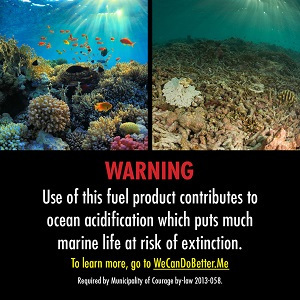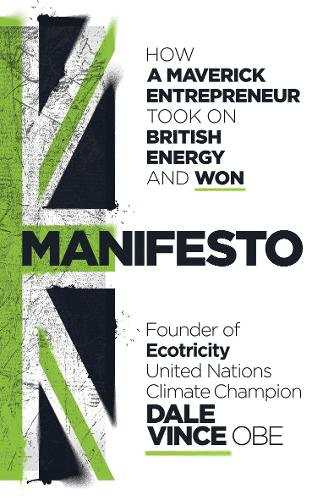Jeremy Williams's Blog, page 101
December 8, 2020
What is the safest form of energy?
I was recently reading A Bright Future, which advocates for nuclear power as a response to climate change. It compares coal power and nuclear power and their relative risk. They helpfully distinguish between what is scary and what is dangerous, and how that can distort our perception of risk.
Nuclear power is relatively safe, but terrifying when it does go wrong. The fear looms large and many people are more wary of it than necessary. Coal power isnt scary, but it is far more dangerous.
...
December 7, 2020
Book review: Sustainability, by Maurie J Cohen
Polity Press have a series called Short Introductions, which are academic overviews of various subjects in social studies. The sustainability entry is by Maurie J Cohen, professor of Sustainability at the New Jersey Institute of Technology.
As youd expect from an introduction, it looks at what sustainability is, where the idea came from and how it is defined, and how useful it is in the real world. It includes summaries of lots of lines of thought within sustainability, such as the...
December 5, 2020
What we learned this week
New Zealand has declared a climate emergency and that the government will try to get its own emissions to net zero by 2025. (It got less coverage, but Japan declared a climate emergency a couple of weeks ago too.) These are symbolic of course, but they are also a powerful statement of intent.
How adding seaweed to cattle feed can reduce emissions. The easiest way to reduce beef emissions is to reduce beef consumption of course, but this is useful too.
I learn from the Spokesmen Cycling...
December 4, 2020
It’s time for full transparency about petrol
In 2015 I wrote about a scheme in Canada to add warning labels to petrol pumps gas pumps, for my American friends. The labels were inspired by the warning labels on cigarette packets, with wording that highlighted the climate impact of the fuel. Its an interesting idea, connecting peoples ordinary actions with their global consequences, though for a while it didnt look like it was going to get much further than certain regions of Canada.
That changed this year, when Cambridge,...
It’s time for full tranparency about petrol

In 2015 I wrote about a scheme in Canada to add warning labels to petrol pumps – gas pumps, for my American friends. The labels were inspired by the warning labels on cigarette packets, with wording that highlighted the climate impact of the fuel. It’s an interesting idea, connecting people’s ordinary actions with their global consequences, though for a while it didn’t look like it was going to get much further than certain regions of Canada.
That changed this year, when Cambridge, Massa...
December 3, 2020
How big do you want your power grid?
Earlier this year the green light was given to what will eventually be the world’s largest solar farm. There are regulatory and funding obstacles to overcome yet, but if all goes to plan the Sun Cable project will see 10 gigawatts of solar panels installed in the Australian desert.
To put that in context, Britain’s Hinkley Point C nuclear reactor will deliver 3.2 GW of power when/if it comes online in 2025. So this would be three times the capacity of Hinkley, even though it will cost less t...
December 2, 2020
Film review: I Am Greta
Sometimes a film-maker gets lucky. I saw a good example earlier this year, watching Knock Down the House. Someone had to be there, filming Alexandria Ocasio Cortez talking about her political ambitions while polishing glasses in a New York bar. If she hadn’t won, the footage might never have been used. As it is, they got to be there to see history being made.
Nathan Grossman is another such film-maker, booking in a couple of days at short notice to film a solo climate protest after a suggesti...
December 1, 2020
How Barbados will reach 100% renewable energy
I recently wrote about how hard it is for small island states to embrace renewable energy, even though they tend to have the most expensive energy prices in the world. While it might seem obvious that tropical islands ought to be able to make use of solar power, in reality it is very difficult to incorporate variable power sources into a small grid. Consequently, small countries that market themselves to tourists on the basis of their sunshine are, ironically, stuck with fossil fuels.
One ex...
November 30, 2020
Book review: Manifesto, by Dale Vince

Dale Vince is an entrepreneur, activist and founder of Ecotricity, and a pioneer of sustainable business. This is his first book, which is described as “part memoir, part mission statement.”
“I’ve spent my life in pursuit of a different way to live” says Vince at the outset, and his first effort at that is dropping out and joining the new age traveller movement. Moving from place to place, he spent the 80s living in vans and buses, frequently moved on by the police, and cobbling together...
November 28, 2020
What we learned this week
Ripple is a new energy start-up that is inviting customers to buy shares in a wind farm, making it the first to be owned by its customers. There are community energy groups that might argue that’s only true as a technicality, but it’s still a good idea that supports energy democracy.
Canada has set out proposals for a net zero by 2050 climate target. Yes. Do it Canada.
“As anti-racists, we cannot be against ‘racial’ inequality at home, while at the same time perpetuate ‘racial’ inequality ...



